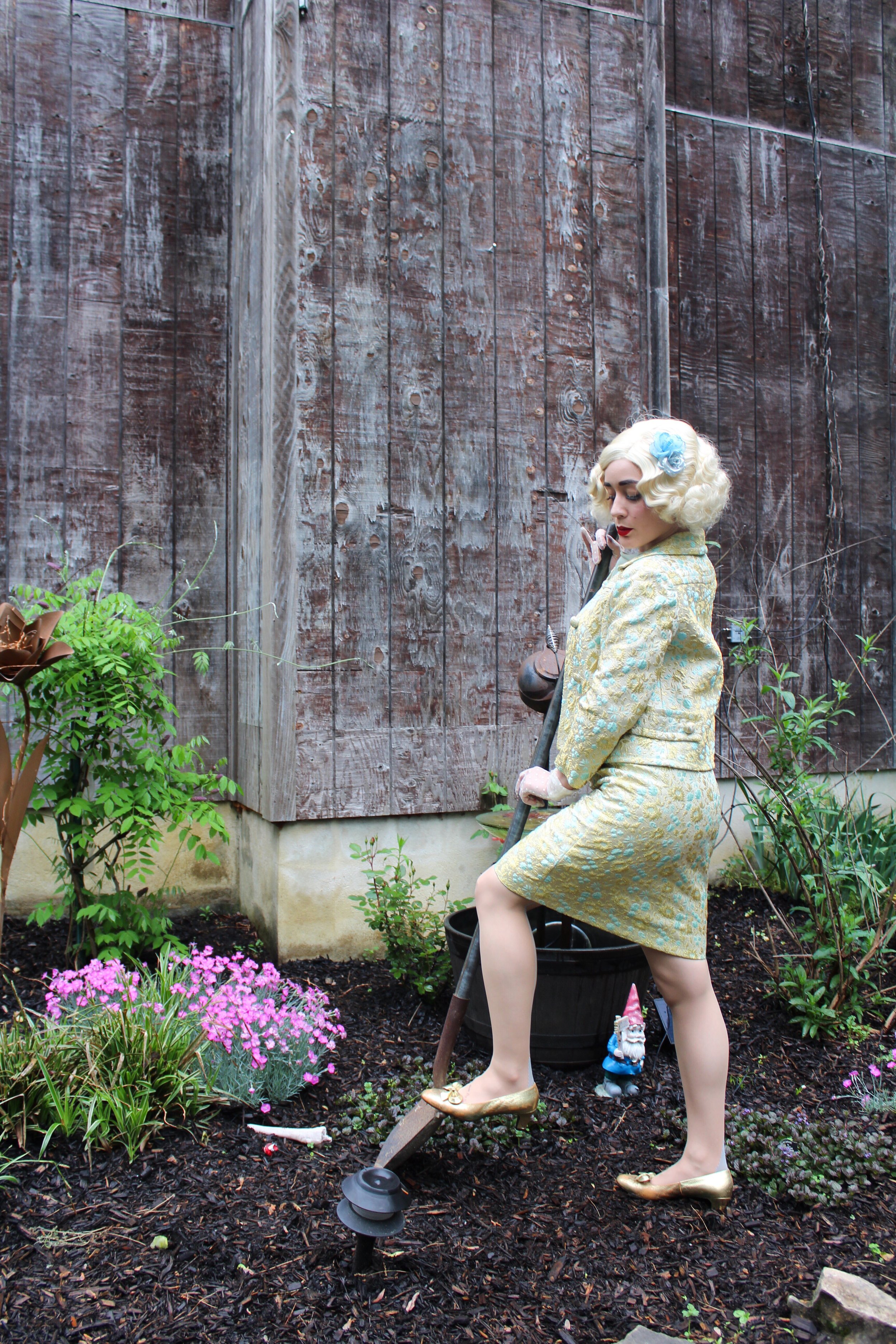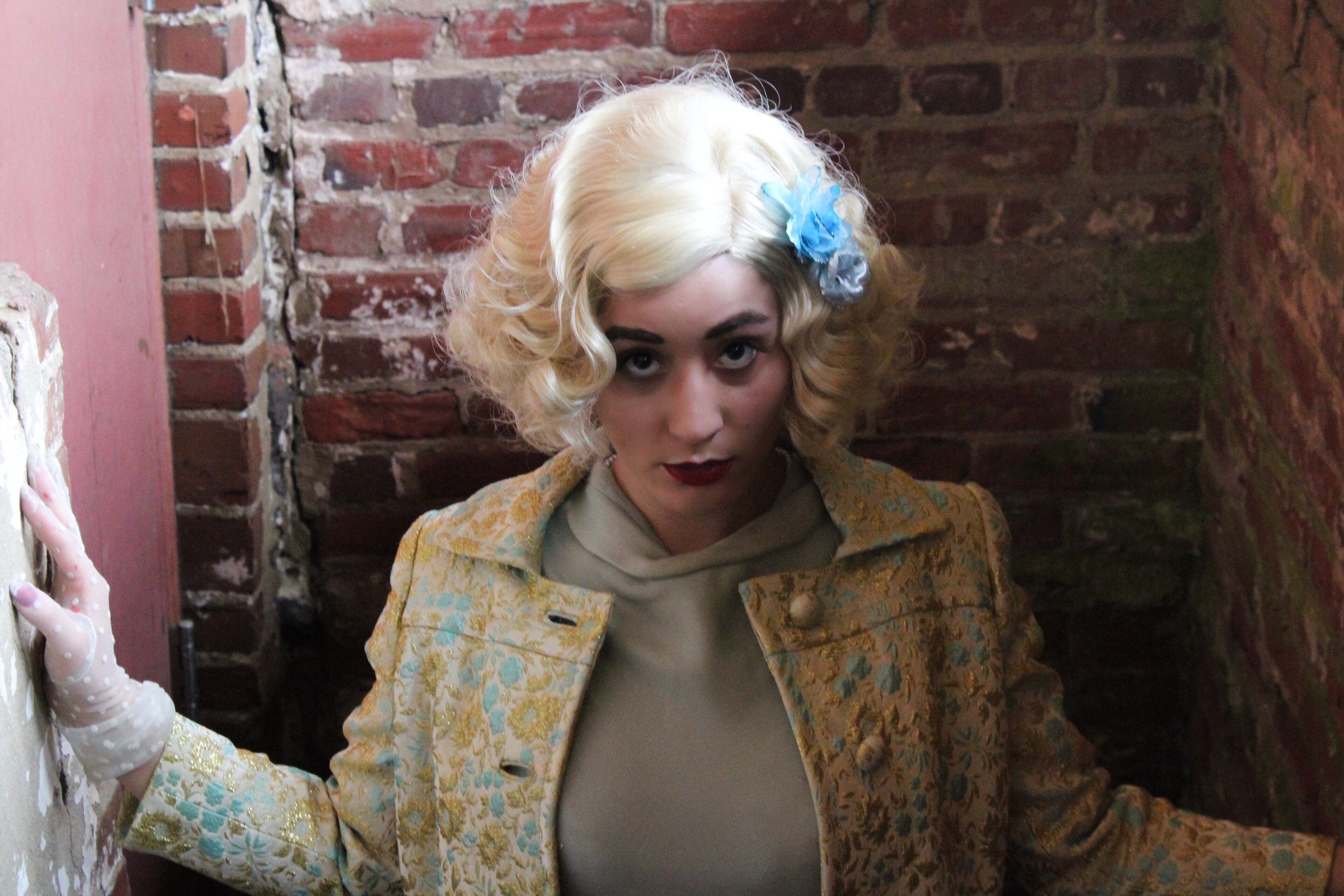It’s difficult to imagine keeping up an elaborate lie your entire life, but that’s exactly what Dorothea Puente did. She maintained both her innocence and her fantasy life until she took her last breath at The Central California Women’s Facility in March of 2011. This is a woman that cannot seem to admit to anything that might put a blemish on her character. She‘s concocted an unnecessarily implausible excuse for even one of her pettiest crimes — propositioning fellatio to an undercover police officer, a crime that only warranted 90 days in jail and would hardly be considered violent or malicious. Dorothea insists she was simply visiting a friend at what she wholeheartedly believed was a bookkeeping office, when the place was raided by police. She was charged only because she was there. A classic wrong place, wrong time sort of thing, if you will.
Then there’s her childhood, and the increasingly elaborate tales she wove about her past. Sure, she’d admit to illegally operating a boarding house, but even that served to make her look more altruistic: this poor elderly woman, who was wrongfully sent to prison, is on probation, but just can’t resist helping those in need. Sure, she cashed their checks, but she had to operate the boarding house somehow. The crime that resulted in her probation? Drugging and stealing from patients she was caring for while she worked as an in-home aide. According to Dorothea, the charge was impossible — she could never drug anyone, because she just “wasn’t that type of person.”
It’s as if she had this pathological need to be seen as a good person. The psychiatrist who evaluated her after the arrest had this to say:
“I think she truly wanted to rehabilitate [her tenants] as she could not the people in her own family. On the other hand, when these people, as could be expected, would act up—at that point, she snapped and decided to kill them.”
He spent a total of twelve hours speaking with her, and eventually diagnosed her with antisocial personality disorder. I haven’t met Dorothea, and I’m certainly no psychiatrist, so I don’t want to dispute his claims, but I do wonder how altruistic those original desires actually were. She undoubtedly had a rough upbringing, and it would be understandable that she would suffer throughout her adult life as a result of that. But Dorothea never did a good deed without making sure people knew about it. With her first boarding house, she donated to charities and political organizations, allowing her to attend events where she could be photographed with local celebrities and politicians. It wasn’t as if she did all these good deeds to no fanfare.
Then there’s all of the “low-cost medical care” she provided to her tenants and the Mexican community in San Francisco. With medical qualifications that were completely fabricated, there’s no telling what harm she may have been putting them under.
Clearly, the appearance of being a good person was very important to her, but I’m not wholly convinced that she actually wanted to be a good person out of the kindness of her heart.
Still, we are left with the mystery of Dorothea, and why she fought so hard to maintain her delusions. I use the term “delusions” here, but I don’t mean to imply she was mentally ill and believed them in the purest sense. But I do think that her lies became such a large part of who she was, that she began to almost see them as true. I’m sure many of us have met people like this — people who seem to lie almost pathologically, even about the most arbitrary things, and although their tales are so outlandish, and dismissed by most people, they’ll always find someone to listen.
Sometimes you’ll catch a glimpse of desperation there, no matter how callous and cold hearted this person may be, that they just need this to be true. Of course they aren’t actually delusional, and undoubtedly know that they are lying, but it almost seems that the constant repetition and desire to manipulate the truth has a profound effect on a person, one that allows them to just nearly believe themselves. I think Dorothea wanted to convince herself that her lies were true.
I don’t believe her “kind old lady” facade was specifically created for the purpose of murder, but more as a ruse to maintain her appearance of altruism and respectability. I wholeheartedly believe she would have done anything to keep this ruse going, and if murder was necessary, or at least an easy solution, she had no qualms about taking a life. She was so focused on herself and her public image that the lives of others were simply insignificant to her.
I’ve referred to her as a female Ted Bundy, but that’s only in the sense that, like Bundy, she was able to use her appearance and personality to convince potential victims that she wasn’t a threat, to lull them into a false sense of security. But as far as the crimes themselves go, I don’t believe she necessarily enjoyed the act of killing. That being said, it certainly didn’t seem to upset her any either.
Where the psychiatrist’s claims fall apart for me is when you consider the deaths of Ruth Monroe and Everson Gillmouth, two murders she has not been convicted of but is widely believed to have committed. These don’t seem to be crimes where she “snapped.” These weren’t her boarders. In the case of Ruth in particular, we know that Ruth’s health began quickly deteriorating as soon as she moved in with Dorothea, and that the process leading up to her death must have lasted at least a few days. In light of the boarding house murders, it seems likely that she poisoned Ruth as well, and if you believe she did, there’s really no way to deny the premeditation there. With both of these crimes, money seemed to be the motivation once again.
And yet, Dorothea has always glossed over these instances, claiming Ruth’s death was suicide and never speaking of Gillmouth. Even in prison, with no chance of parole and her appeals long exhausted, Dorothea refuses to show remorse. She can’t, not without admitting she isn’t the saint she’s claimed to be. It’s a strange thing, because Dorothea’s delusions may make her the most frightening sort of serial killer. She’s not out for a thrill, she doesn’t need to enjoy the crime, there’s not much of a “type” to her victims except that she’s able to serve them food or drink.
When Martin Kutz conducted a series of interviews with Dorothea for Sactown Magazine, he admits that she appears and behaves like an ordinary old lady. He’s smart enough to know better, but the idea still presents itself: she’s utterly ordinary. She’s not out hunting for victims or saving “tokens,” she doesn’t brag about her crimes or seem to care for notoriety. No, Dorothea is wrapped up in her fantasy world and her insistence that she’s a good person. And that’s what makes her so terrifying. She’s an otherwise unremarkable woman who simply doesn’t place value on human life.




